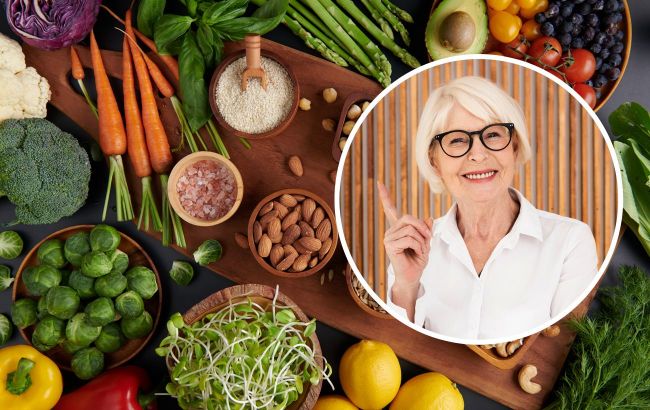Dietitian names foods that trigger and prevent stroke
 RBC-Ukraine collage
RBC-Ukraine collage
The foundation of a stroke is atherosclerosis, a chronic vascular disease characterized by the deposition of atherosclerotic plaques. When the blood vessels become clogged due to these deposits, it disrupts the blood supply to organs and tissues. Nutrition plays the most significant role in preventing strokes, according to dietitian Oksana Skitalinska.
Nutrition that increases the risk of stroke:
- High-calorie (due to high amounts of fats and sugars).
- Excessive consumption of sweets and bakery products, as well as "soft drinks" (sodas, fruit juices, and nectars).
- Overuse of trans fats (found in margarine, long-lasting confectionery, convenience foods, creamy fillings in candies, cookies, wafers), especially of unknown brands, simply packaged by weight.
- Excessive consumption of saturated fats (fatty sausages and sausage products, especially salami, cream butter, fatty dairy products).
- Deficiency of dietary fiber (consumption of refined flour and cereals, low intake of vegetables, fruits, and berries).
- Poor in natural vitamins, minerals, and antioxidants (mostly highly processed food filled with flavor, taste, and consistency enhancers).
Nutrition that can prevent strokes:
This involves a balanced diet with three groups of products: protein, whole grains; vegetables, fruits, berries; healthy fats.
Avoid one-time high-fat loads (such as fatty pizza or cream cake, fried fatty foods).
Low glycemic index with limited sweets. Limiting means consuming them as infrequently as possible, preferably replacing them with berries and fruits.
Rich in fiber and pectin. This includes ground oats, wheat, and rye bran that can be added to dishes; baked vegetables, berries, seaweed. You can add ready-made fiber as a supplement.
Control salt intake (daily norm - 5 grams, roughly a teaspoon).
Rich in natural vitamin C, needed for collagen protein synthesis, which is essential for healthy blood vessels. Sources include rosehip berry extract, parsley greens, fresh and pickled cabbage, bell peppers. You can also supplement your diet with vitamin C.
Rich in minerals (magnesium, potassium, selenium, iodine), B group vitamins, and vitamin D. These are whole grain cereals, nuts, seaweed, brewer's yeast.
Rich in healthy fats, especially plant-based omega-3: walnuts, flax seeds, sesame, sunflower, pumpkin, and fatty fish (mackerel, herring).
Give preference to not fried but baked, boiled, and stewed foods.
With the consumption of healthy, low-calorie beverages: water, and in small quantities, green and black tea, and sugarless coffee. Drinking plain water is the best choice for maintaining good health.
Following a regular meal schedule (breakfast, lunch, and dinner) and avoiding late dinners (it's better to have dinner 2-4 hours before bedtime). It's a good idea to drink warm water (which can be slightly acidified with lemon juice) in between meals.
This material is for informational purposes only and should not be used for medical diagnosis or self-treatment. Our goal is to provide readers with accurate information about symptoms, causes, and methods of detecting diseases. RBС-Ukraine is not responsible for any diagnoses that readers may make based on materials from the resource. We do not recommend self-treatment and advise consulting a doctor in case of any health concerns.

